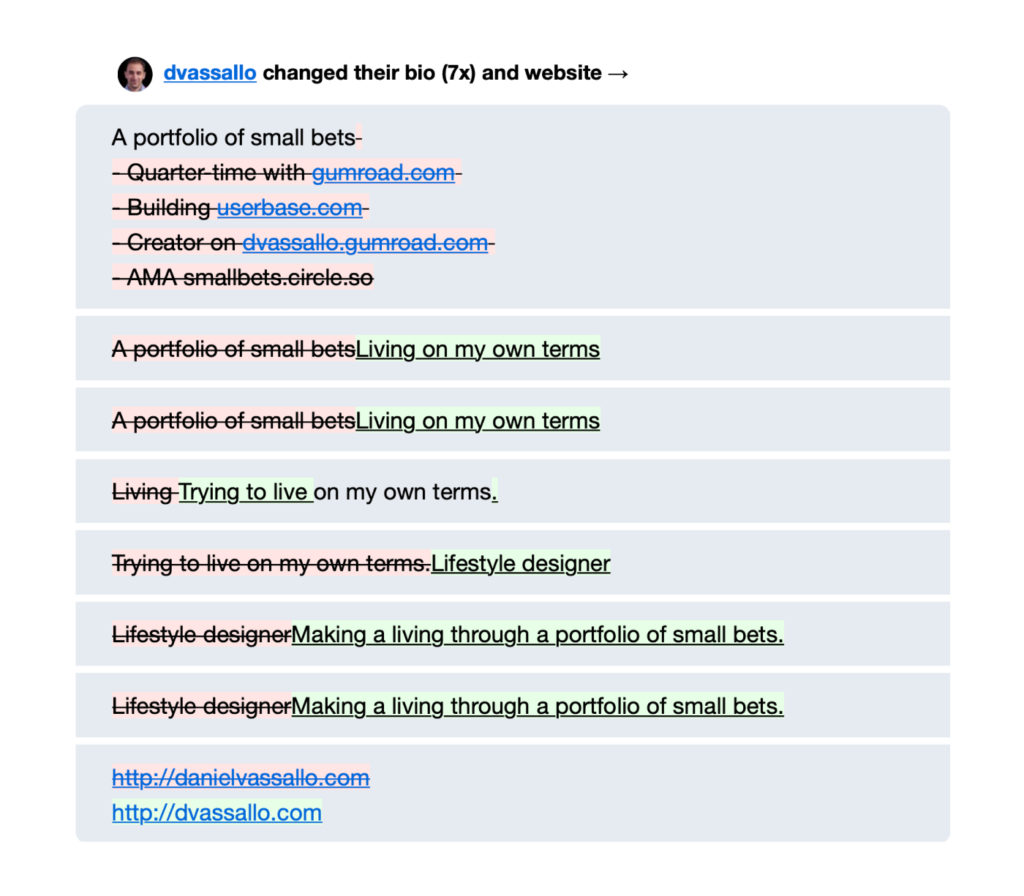Spoonbill snapshots and tracks the changes people make to their Twitter bios, displaying those changes as a timeline. It’s a view into how people express their identity. Especially when that identity needs to be compressed into a couple hundred characters. This article is a good overview of both the service and its implications, using lots of examples such as this one:
The writer says
Spoonbill not only satisfies our tendency for online lurking, but pushes it into voyeur territory; surfacing what’s meant to be hidden is intimate in a way that scrolling a timeline isn’t.
The app isn’t doing anything special in terms of data access. This is an official Twitter API, and it’s how alternative Twitter clients work. What’s special is that it places previously scattered, obfuscated data side by side. That’s what creeps people out.
This is another aspect of privacy isn’t it. We think of it primarily as ‘someone is reading what I type or browse’. It is, but the other aspect is also analysis of data you reasonably expect to be ‘in the wind’.
Say you shopped locally at a grocer’s, a pharmacist’s, a greengrocer’s, your local pub, your barber, and so on. You know that each of them knows what you’re buying. Now imagine they pooled together their receipts and ran a pivot table on them. And now when you visit the greengrocer, (s)he says ‘You bought antacid on Monday? Don’t buy your oranges and kiwis; they might exacerbate it. Here’s some bananas.’ and now you’re freaked out.
Essentially, be aware that most things you put out on the internet that can be seen publicly can also be catalogued, put together and analysed. Just like Spoonbill did. Just because you change something does not mean the previous version is lost forever – no such thing.

